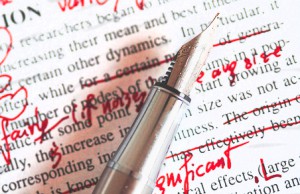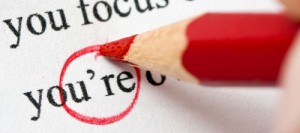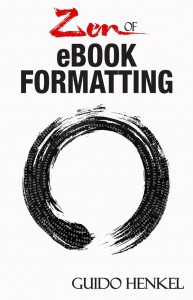Three indie author mistakes that could cost you dearly
As self-publishing, independent authors, to typically relish in the freedom we have suddenly be handed, allowing us to truly own our books, cradling and nourishing them from the very first word, all the way until we usher them out the door through self-publishing platforms such as Amazon or Barnes&Noble.
 I am sure you’ve heard the saying before, that freedom is never free, however, and while not really meant within that context, it is certainly true for self-publishing authors and contains a nugget of wisdom we should all take to heart.
I am sure you’ve heard the saying before, that freedom is never free, however, and while not really meant within that context, it is certainly true for self-publishing authors and contains a nugget of wisdom we should all take to heart.
As a self-published author myself, I know how much work goes into a fully finished product, even in an all-digital world. As an eBook formatter for hundreds of independent authors, I also constantly witness the struggles and problems that authors fight. Whether its questions arising on my formatting blog tutorial, my book Zen of eBook Formatting, or through email, I am witness to the tribulations of many writers. Since I am also a reader, constantly looking for new books to feed my mind, browsing Amazon’s Kindle section further helps me understand the situation that presents itself to self-published authors.
This biggest question, I believe, every self-publishing author needs to ask themselves is this: Simply because we can handle everything ourselves, does it also mean that we actually should do so?
Editing
Writing a book is one thing. Editing a book is a different thing entirely. Too many authors either do not understand the process of editing, or they discount its value. Having a bit of ego is good if you’re a writer, but do not let it interfere with your actual work. It is fine to love what you are writing, but make sure you never fall in love with it! What I mean by that is that if you get to the point that you believe no one should have a right to touch your writing, that every comma is exactly where it should be, and that every word in your prose is perfectly concise and where it should be, the odds are that you are overestimating your abilities.
 Even Mark Twain had an editor. He did not like it, but he did. What he realized, however, is that a different set of eyes brings out shortcomings in writing. Ambiguous expressions, sentences that may not be quite as clear as they were in the writer’s mind, and much more. Even the best writers jump to conclusions because they have this picture in their mind that they try to relay to paper. The picture in their mind is complete in its own way, so they fill in the words to describe the image. But every once in a while, the writer will overlook a small detail that he takes for granted because of the image in his mind. An editor can help in such cases, pointing out the omission or simply helping to clarify the written words through different word usage or sentence structures.
Even Mark Twain had an editor. He did not like it, but he did. What he realized, however, is that a different set of eyes brings out shortcomings in writing. Ambiguous expressions, sentences that may not be quite as clear as they were in the writer’s mind, and much more. Even the best writers jump to conclusions because they have this picture in their mind that they try to relay to paper. The picture in their mind is complete in its own way, so they fill in the words to describe the image. But every once in a while, the writer will overlook a small detail that he takes for granted because of the image in his mind. An editor can help in such cases, pointing out the omission or simply helping to clarify the written words through different word usage or sentence structures.
The problem is that too many authors see an editor as the enemy, which they are not. Too many authors see editors as critics with the sole malevolent purpose to tear their work apart and violate it. In the self-publishing world, nothing could be further from the truth. Look at an editor as a fresh set of eyes who can help you streamline your writing, creating a better experience for your readers. After all, you are paying the editor, which makes it perfectly okay for you to reject their comments. There is nothing wrong with looking at the notes of an editor and flat out rejecting some of them because they misinterpret your intentions. But for every one such case, I am certain you will find countless others where the editor’s suggestions will make you think about your writing some more, and perhaps improve it as a result of it. so, why would you want to miss an opportunity to make your writing better?
Proof Reading
A lot of people mistake editing for proof reading, when they are, in fact, two very different things. Naturally, a lot of editors do correct typos and spelling errors, because it often comes naturally as they go through your words with a fine-toothed comb. However, their job is to look at the meaning of your writing, not its fundamentals.
 That’s the job of a proof reader, who will ignore all things related to style and grammar, but will instead scan each word in your manuscript to make sure it is spelled according to dictionary standards. This requires a special skill set, different from an editor’s, because a good typesetter is absolutely dictionary proof, which means he has internalized the correct spelling and exact meaning of roughly 500,000 words, plus all of their proper tenses, inflections and cases.
That’s the job of a proof reader, who will ignore all things related to style and grammar, but will instead scan each word in your manuscript to make sure it is spelled according to dictionary standards. This requires a special skill set, different from an editor’s, because a good typesetter is absolutely dictionary proof, which means he has internalized the correct spelling and exact meaning of roughly 500,000 words, plus all of their proper tenses, inflections and cases.
You may confuse your word processor’s spellchecker with a proof reader, but they are not the same thing either, because the spellchecker only looks if the word as such is a valid spelling. It does not determine, whether you are using the proper spelling for the respective word you are trying to us. It will gladly accept the word “hair” instead of “hare,” whereas a proof reader will catch this error and correct it for you.
Having a book that is free of spelling errors and typos is the epitome of publishing and should be every author’s goal, always.
Formatting
Also high on the list is the formatting of eBooks—and the creation of a print layout, for that matter. Once again, you are looking at very specific skill sets here, and unless you do have the technical wherewithal and understanding of what eBooks are, what their technical implementation looks like and what the resulting limitations are, it might not be advisable for you to tackle this end of the publishing pipeline yourself.
 As you undoubtedly know, I’ve long been an advocate for proper eBook formatting, trying to enable authors with my Take Pride in your eBook Formatting blog tutorial, as well as my book Zen of eBook Formatting.
As you undoubtedly know, I’ve long been an advocate for proper eBook formatting, trying to enable authors with my Take Pride in your eBook Formatting blog tutorial, as well as my book Zen of eBook Formatting.
However, the field of eBook formatting is becoming trickier by the day, and more and more it requires very specialized skill sets and knowledge. With every new eBook reader in the market, with every update to the software readers Amazon, Barnes&Noble or Kobo offers, and with every new cell phone and tablet that enters the market,the playing field becomes harder to control.
When the Kindle was first released, things were easy because it was the target platform. In today’s world Kindle is not even Kindle any longer. There are so many device generations, each of which behaves differently, and there are so many software Kindle readers, each with their own flaws, that formatting a book for the Kindle alone can be a tremendously challenging—and time-consuming—task, depending on your book. But the Kindle is no longer alone. There is the Nook in its countless iterations, there is the Kobo reader, there are hundreds of cheap knock-offs from China… the list has gotten endless. To ensure that a book displays absolutely perfectly on all devices has become a magic trick, almost… something that is almost unattainable for certain books, because there are too few control mechanisms in the eBook format themselves.
And yet, nothing upsets a reader faster than a shoddily formatted eBook. It may just be the number one reason why readers put down a book prematurely, because they cannot see beyond the flawed text flow, the jumping margins, the inconsistent text size, the lack of proper quotes, or the broken indentations. And once a reader has put your book down, the odds are they will never pick it up again, and, what’s even worse, they may never buy another one of your books in the future.
Naturally, for all these services you can hire professionals whose job it is to make sure your work is treated professionally. These collaborators will help you on your road to a successful book with their advice, experience and services. It is for that reason that I have been offering eBook formatting services to authors and publishers for many years; to make sure that digital books will get the same respect as their print counterparts.
If you want to keep up with my eBook formatting work, don’t forget to subscribe to my Newsletter. That way I can keep you updated about the latest developments, updates to my book, code snippets, techniques and formatting tips.
